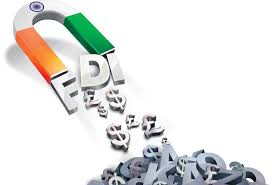Foreign direct investment to Turkey decreased by 35 percent; as 2.8 billion dollars foreign investment exits country, according to UNCTAD report. Since the beginning of the year, Turkey also bled a total of $12 bn in bond and stock disinvestments. Turkish 5-year CDS premium rose to 485 basis points, on Thursday, the highest among peer EMs like Brazil, South Africa and Russia.
According to the World Investment Report 2020 that was prepared by the Organization of the United Nations Conference on Trade and Development (UNCTAD), FDI to Turkey decreased by 35 percent in 2019 dropping to $ 8.4 billion.
According to the news of Cumhuriyet Newspaper, Ayşem Sargin, the President of the International Investors Association (YASED), provided information about the report of UNCTAD. She said that the 8.4 billion dollars of foreign direct investment that was invested in Turkey in 2019, corresponded to only 0.5 percent of foreign investment in general, globally. She also pointed out that last year, $ 2.8 billion, long-term direct investment had exited Turkey.
According to the UNCTAD report, the stock of foreign direct investment in Turkey reached 164.9 billion dollars at the end of 2019. The stock existed was $ 47.7 billion. At the end of 2010, these figures were $ 188.4 billion and $ 22.5 billion, respectively.
Last week, foreign financial investors bought $50 mn worth of Turkish stocks, while dumping $720 million.
Why is Turkey so unloved? “Erdogan becomes dangerous for Turkey”, claims MBS News, adding “The president entered a battle for supremacy with his political opponents from the Republican People’s Party, which puts him at risk for the country, Patrick Dickman writes. He is trying to mitigate the effects on the economy by loosening measures – at the expense of pandemic protection. Erdogan is loosening restrictions selectively – only where it will benefit the economy: malls and hairdressers are open, but not schools and mosques. By the way, Turkey’s economic problems began long before the outbreak of the coronavirus crisis. In recent years, Erdogan has made a number of mistakes, recalls Deutsche Funk radio. Now the pandemic has simply worsened the already difficult economic situation in the country.
At the time, the Turkish government financed strong economic growth with loans, and the country became heavily dependent on foreign investors, currency and imports. But now there is no investment from outside. This is due in part to the coronavirus crisis, but also to Erdogan’s low interest rate policy, which has put pressure on Turkey’s central bank to lose the confidence of many foreign investors. In addition, the Turkish economy is heavily dependent on tourism, a sector that is also in trouble.
Meanwhile, the ruling Justice and Development Party is falling apart more and more from within. To support it, the president did not miss a single opportunity to attack the opposition and deliberately spread rumors of early elections, said journalist Murat Yetkin. However, he believes that this is just a show and points out that the economic situation is not good enough for early elections”.
Could be the case of “too much, for the little gain?”
You can follow our English language YouTube videos @ REAL TURKEY: https://www.youtube.com/channel/UCKpFJB4GFiNkhmpVZQ_d9Rg
And content at Twitter: @AtillaEng
Facebook: Real Turkey Channel: https://www.facebook.com/realturkeychannel/
